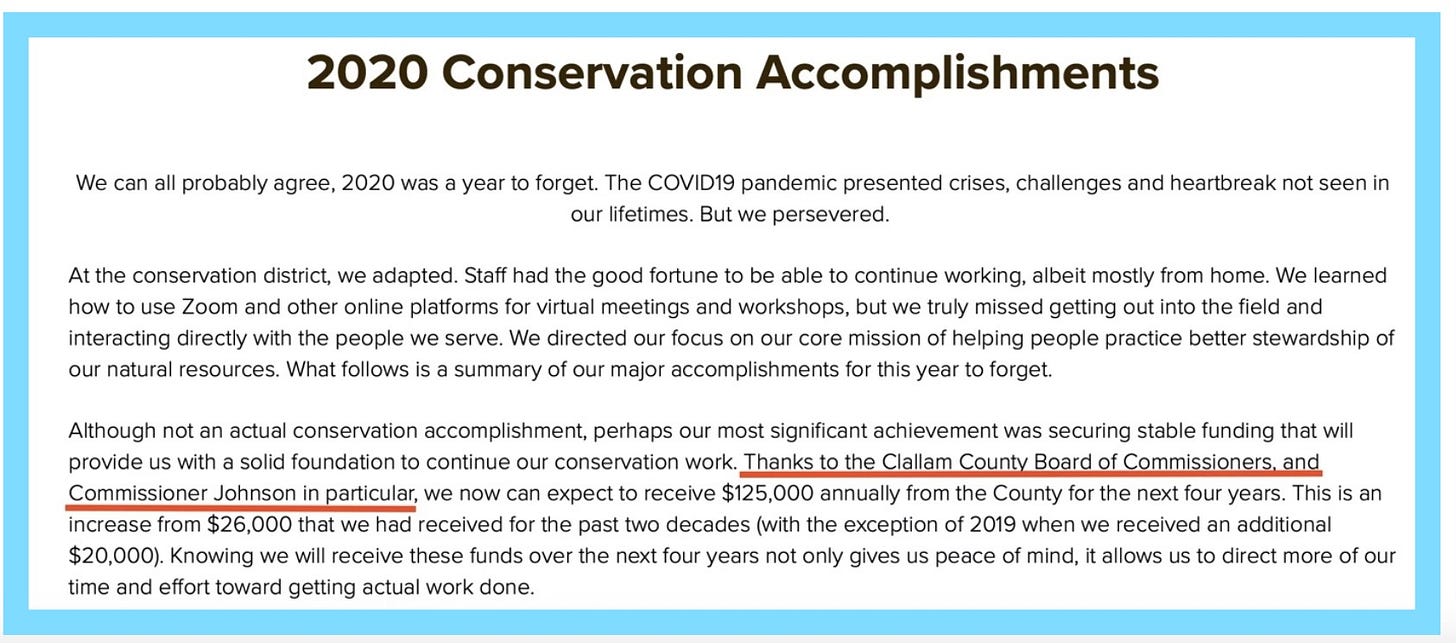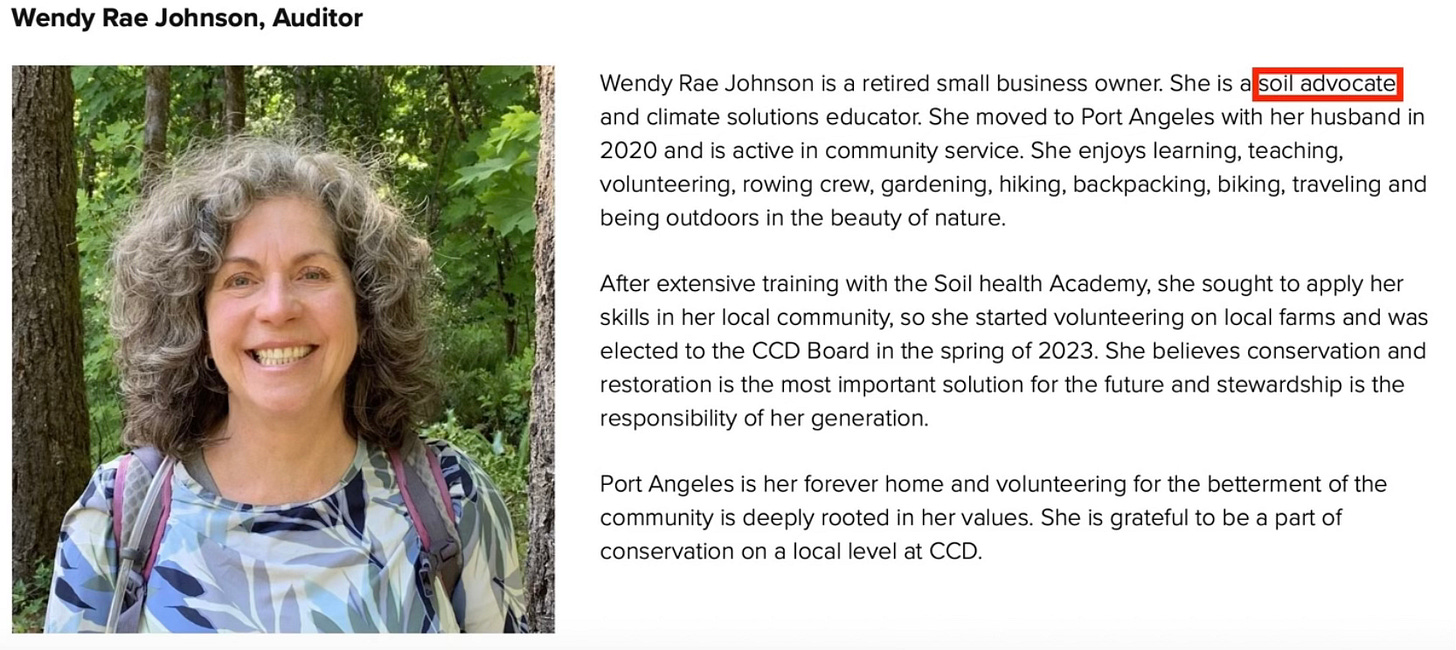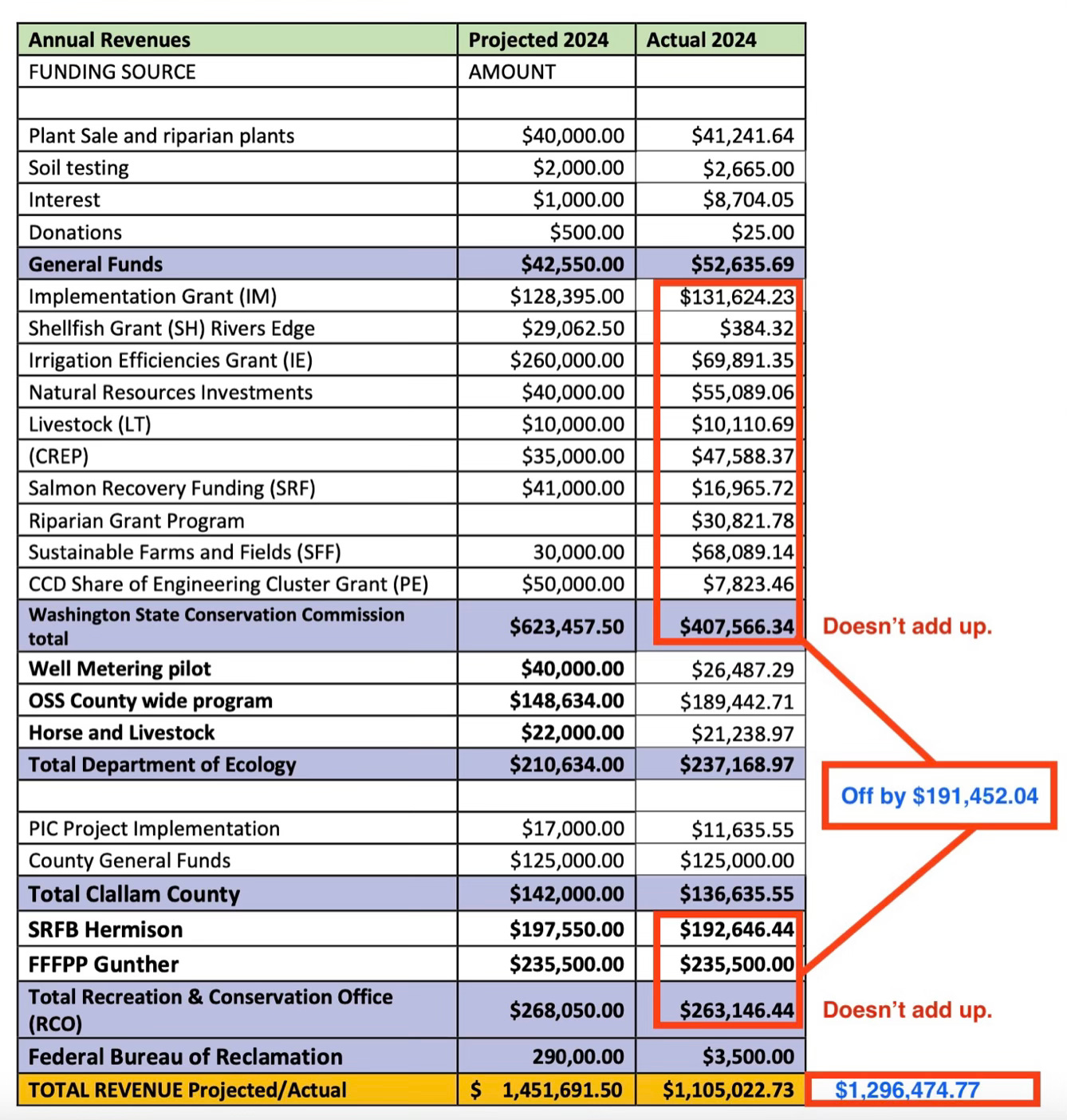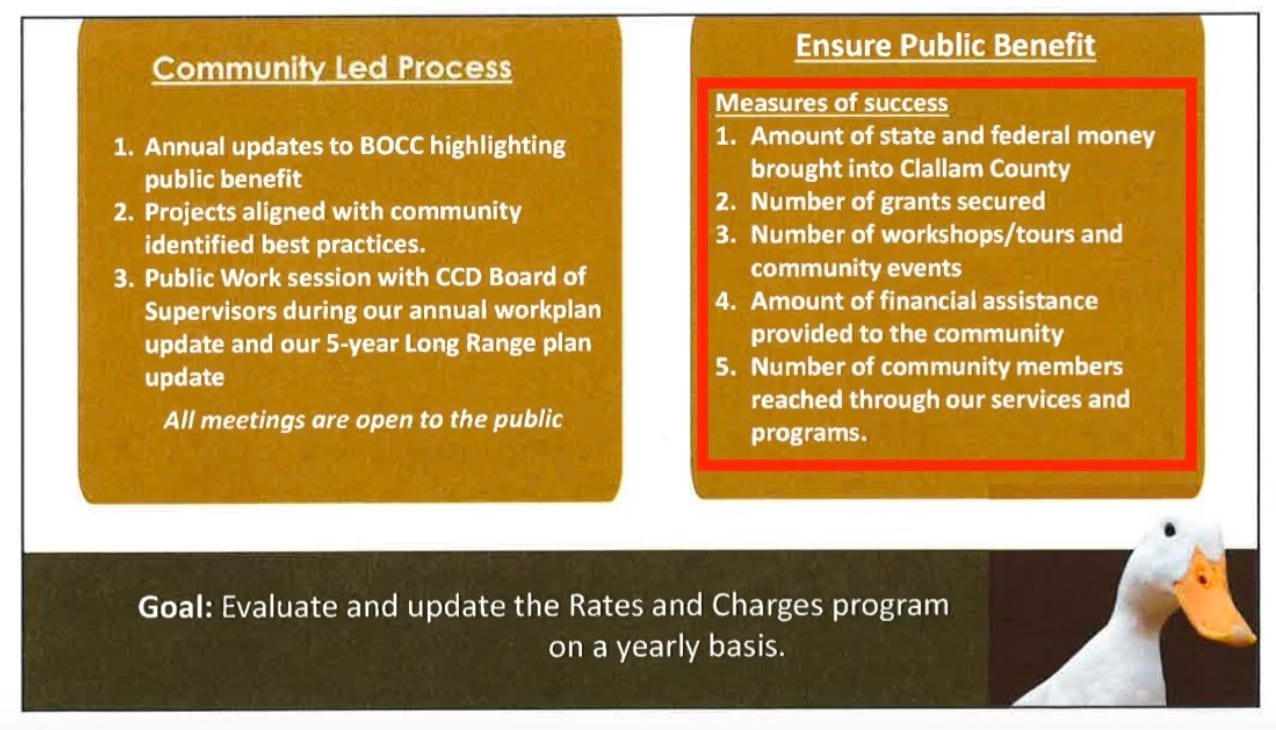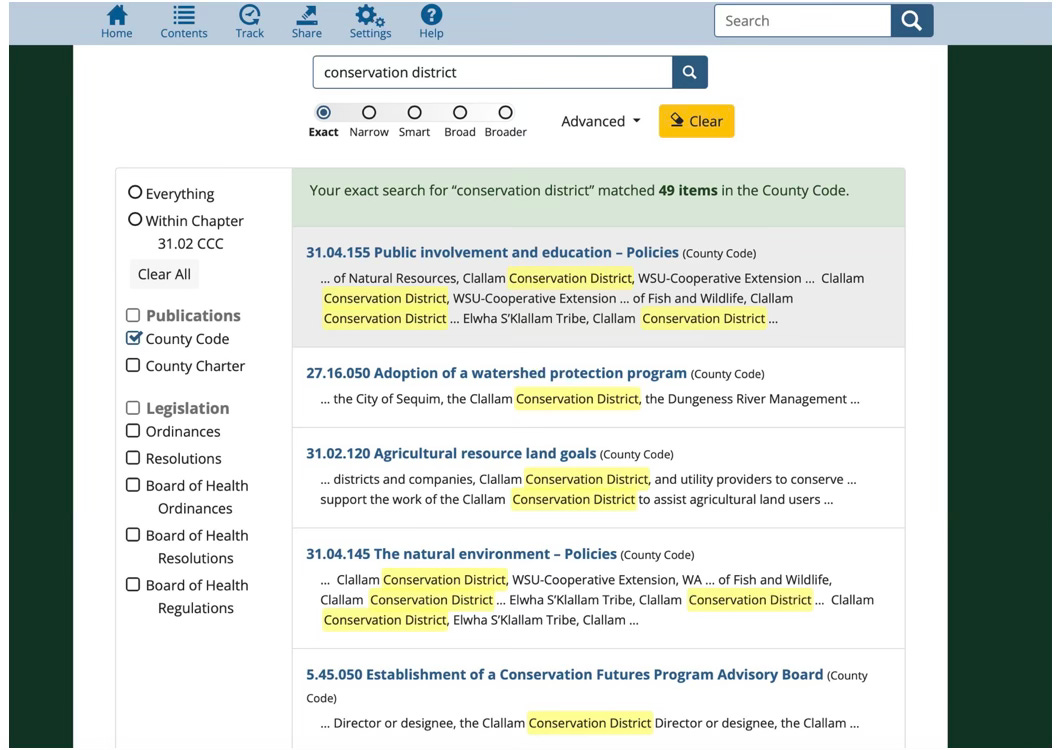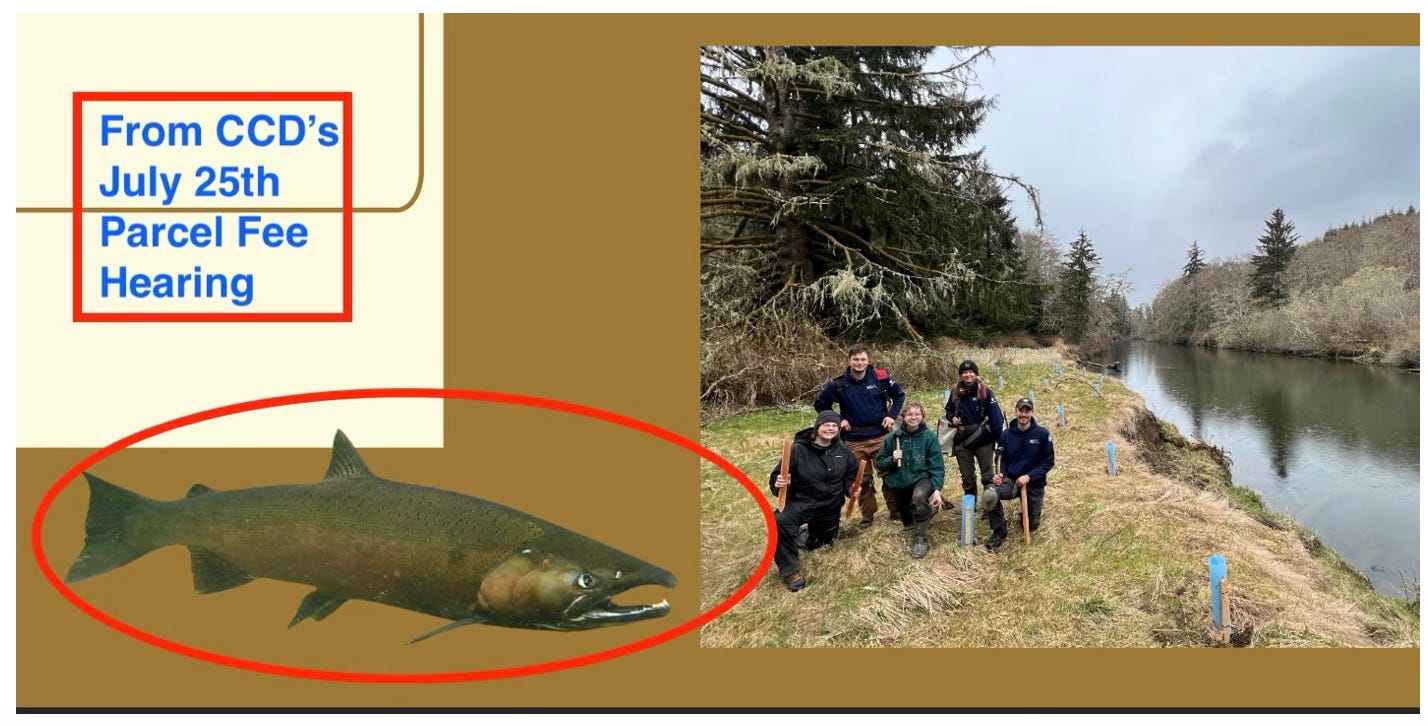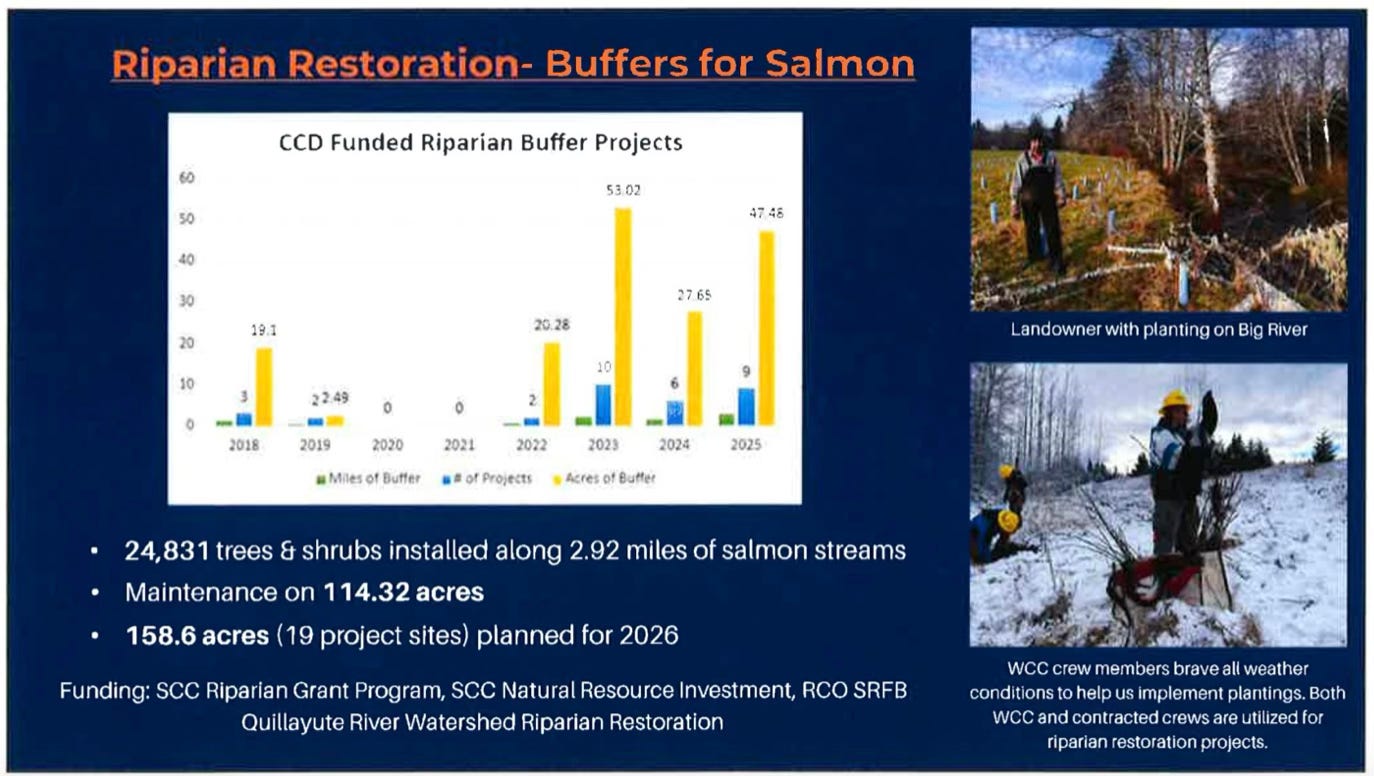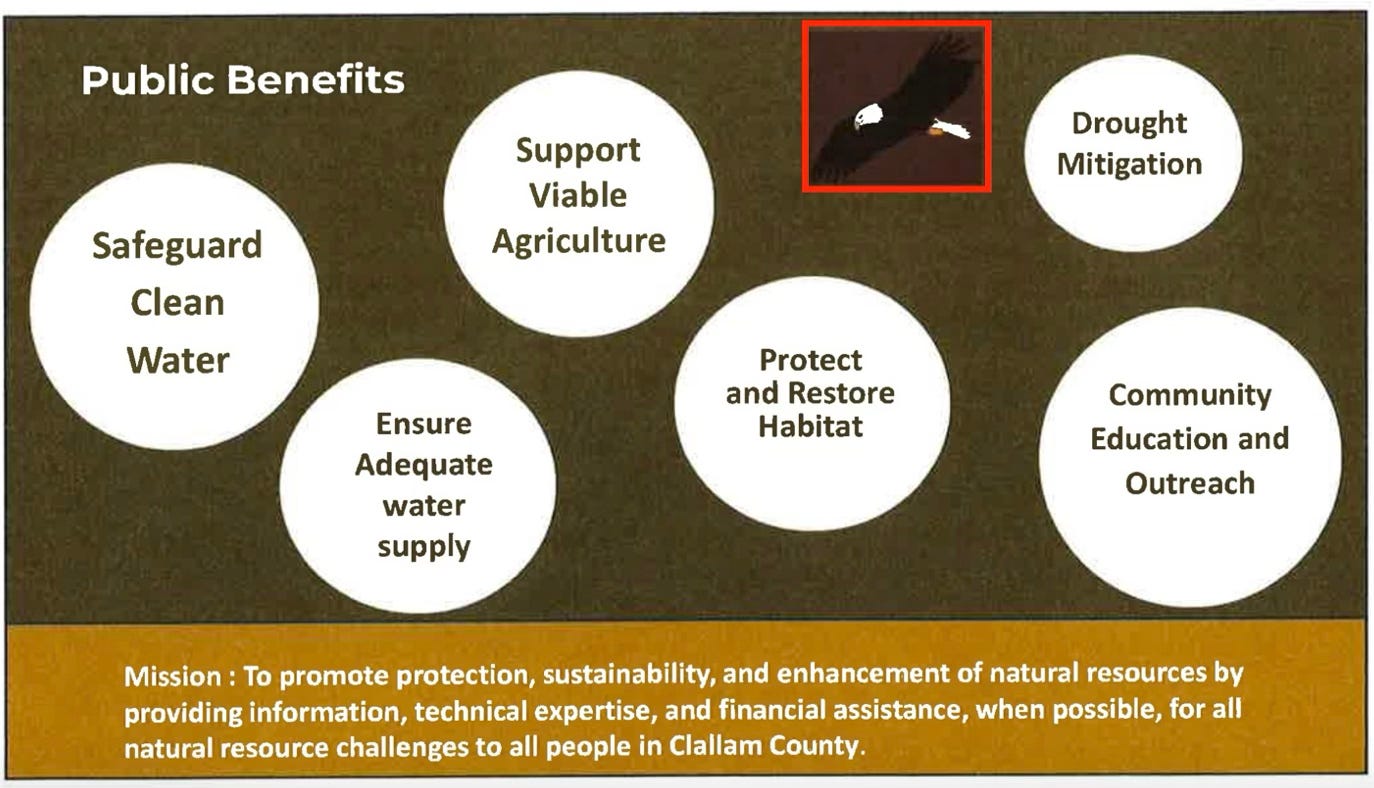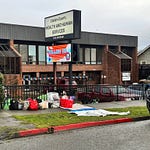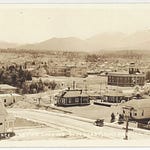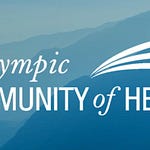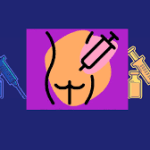Guest contributor Jake Seegers continues examining the Clallam Conservation District’s (CCD) push for a $2 million parcel fee. Critics argue the proposal is less about conservation and more about keeping commissioners and special interests satisfied at taxpayer expense. With only $25 raised in public donations last year, CCD has leaned on grants, insider influence, and shifting narratives — from salmon recovery to food security — to justify its case. Despite well-researched public opposition, commissioners appear ready to approve the fee. On September 23, residents will return with hundreds of signatures, putting commissioners to the test: back CCD’s insider-driven plan, or listen to the voters who elected them.
By Jake Seegers, guest contributor
Any panhandler will tell you: when your livelihood depends on handouts, you learn to tell your audience exactly what they want to hear. The Clallam Conservation District (CCD) has become skilled at this, relying almost entirely on grants and public subsidies. The difference is that CCD’s “targets” — the county commissioners — are not spending their own money. They are spending yours.
On September 23, commissioners are set to decide on CCD’s proposed parcel fee, the final step in what critics call a $2 million scheme: $200,000 in mandatory fees collected annually for 10 years. If approved, the commissioners will no longer be just targets — they will join the heist, revving the engine of the getaway car.
The Plan: Target the Decision-Makers
In 2024, CCD raised only $25 in voluntary donations. That figure alone highlights where the public stands. Yet public support isn’t necessary when the real focus is on the decision-makers who control the purse strings.
CCD’s 2025 Annual Workplan is explicit: keep county commissioners, legislators, and tribes aligned with the district. And keeping these “key decision-makers informed” isn’t funded by CCD itself — it’s paid for through the taxpayer-funded State Conservation Commission Implementation Grant (IM).
Tell Them What They Want to Hear
Those who spend Other People’s Money (OPM) often develop what looks like a “hero complex.” In 2019, when Commissioner Bill Peach opposed a parcel fee, Commissioner Randy Johnson stepped in as CCD’s rescuer, granting them $125,000 a year for five years from the county’s general fund.
The commissioners were praised as champions, but it was the taxpayers footing the bill.
Now CCD is back with the same pitch: commissioners can once again be the heroes — this time by closing a claimed $215,000 “funding gap,” saving federally protected salmon, and ensuring clean water and food for all of Clallam County.
(For details on how this alleged “funding gap” has been questioned, see Jake Seegers’ article: “The Clallam CON-servation District.”)
At the July 25th public hearing, CCD auditor Wendy Rae Johnson, who also calls herself a “soil advocate,” made the case (Listen at 01:03:50):
“So much of what we do is restoration, and it works. The science is there. The improvement in the salmon count is there. The proof in the temperatures of streams is there. The proof in the amount of water that is conserved is there. There’s data…and the staff does more and more and more for the indirect benefit of everyone in the county. And, you know, without farmers we don’t have food…It’s $5 per year and I know I spend $5 on a latte without even thinking about it.”
Her analogy may have sounded simple — but in practice, it means taxpayers collectively covering $200,000 worth of “lattes” every year while the commissioners are called “heroes.” It’s not really a burden, CCD members argue, as long as their “science” and “data” suggest taxpayers will benefit.
Ms. Johnson’s salmon audit may warrant a recount if it resembles CCD’s financial reporting, which is riddled with errors. One example appears in CCD’s 2024 Annual Accomplishments Report.
The science and data Ms. Johnson cites as “proof” of CCD’s claimed benefits have not been shared. Instead, irrelevant, data-absent measures of success have been offered.
Still, the commissioners have taken the “hero” bait hook, line, and sinker, and CCD does not intend to release their catch this time.
Secure Implied Support
The commissioners’ signal of support suggests CCD has already embedded itself deeply into county policy and the comprehensive plan.
Back in 2019, CCD staff hesitated to spend money on a consultant without reassurance from commissioners (April 8th, 2019 commissioner work session). As staff explained at the time:
“That [rates and charges] study could cost up to $30,000 and we don’t want to spend that money unless we know we’re getting some direction that, yes we’re going to, kind of, start drifting down that road…spending money we don’t have to further the cause is one thing. Spending money we don’t have to say, ‘goodbye’ is another.”
This year, staff have shown little hesitation. Their dismissive comments to critics — “Do you like drinking water?” and “Do you eat?” — suggest they already believe commissioner approval is locked in.
Subdue the Masses
CCD’s public hearing strategy seemed less about informing residents and more about smoothing the way for approval.
At the July 8 board meeting, Wendy Rae Johnson urged Director Kim Williams to stress the “vital” role of salmon recovery during the upcoming hearing.
Williams followed that script, spotlighting salmon throughout her July 25 presentation:
“There are four species of salmon in the Dungeness River. They are federally protected and need a certain amount of water to survive.”
She described how riparian vegetation cools streams, slows flow, and supports insects to feed salmon.
But residents weren’t convinced. One bluntly said: “I don’t want to pay the five bucks.”
The disappearing salmon
By the September 2 hearing, salmon had all but disappeared from CCD’s presentation. Not a single reference to salmon or riparian restoration appeared. Instead, the focus shifted to farmers, food, water, and “public benefits.”
This was a sharp pivot from both the July 25 hearing and the CCD’s August 8 midyear update to commissioners, which emphasized riparian restoration.
Director Williams and Chair Christy Cox had been handed a new directive: downplay the salmon and instead emphasize farmers, food, water, and general “public benefits.’ An eagle even appeared in the slides — a noticeable change from the salmon-heavy presentation just weeks earlier.
But the public didn’t buy the fish-free sales pitch either. Teresa Miller of Sequim called out the weakness of CCD’s claims:
“You haven’t explained the need, really. I don’t even understand why we have a need for it (CCD). I sell essential oils…one of the bottles…is like $50..if I don’t explain to you what the value is in that bottle of oil and what it can do for you and how it can benefit you, you’re not going to buy it. And you haven’t done that for me.”
Despite 20 residents making researched pleas against the fee, commissioners dismissed their concerns. Commissioner Randy Johnson even admitted he had already made up his mind before hearing from the public.
Show up. Speak out.
On Tuesday, September 23 at 10:00 AM, Clallam County residents have another chance to make their voices heard. Hundreds of signatures will be delivered to commissioners, urging them to reject the Clallam Conservation District’s proposed parcel fee.
The decision will be telling:
Will commissioners keep siding with CCD and its insider-driven agenda? Or will they listen to the people they were elected to represent — and demand real transparency, accountability, and proof before handing over millions in public money?
📍 Clallam County Courthouse, Room 160, Port Angeles
🗣️ Public comment is allowed.
Be there. Your voice matters.
Last Sunday, Jake Seegers asked 135 readers, when Clallam commissioners make financial decisions (like the $5 CCD parcel fee), do you feel they mostly:
85% said, “Favor allies or personal views”
11% said, “Rely on staff or outside claims”
4% said, “Use clear, measurable evidence”
No one said, “Listen to people”




